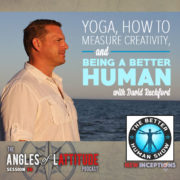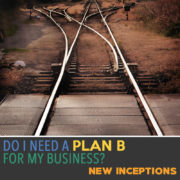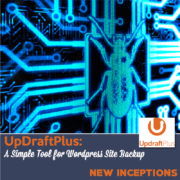When starting an online brand or business you might be wondering one simple question that has a complex answer, “Where do I get started?”
There’s several parts to the answer of this question, but one of them is to start building your presence online in the shape of a website.
Back in the early days of website development and really even today, you had to have some tech prowess to do it on your own. However, I’d say that using digital devices in general takes a little bit of tech “can-do” attitude.
I think what it really breaks down into is this. What level are your own tech abilities? How much are you willing to pay to make up the difference between what you can make on your own vs what you visually see your site doing? The bigger and more functional the website, the more likely you’re going to have to hire some outside help.
Basic Techie Skills Needed:
I think the first thing to consider when you’re wanting to start your own online business is to ask yourself “how techie” am I? Because really, you’re going to be putting content onto something that REALLY is still based off of techie work. The internet is built on nerd power. Period.
Whether you have those techie skills yourself, or you have to hire them out is going to be a big question in what hats you’re going to be wearing in the early formation of your business.
So let’s look at some of the traits I think that you need possess in order to build a website:
Can See the Big Picture:
Have you seen a site that you really want to emulate? Perhaps you’ve seen a few that have different parts that you’d like to include into your own?
Unlike where you might have last worked, it’s up to you to think how you’re going to from nothing to something.
What’s that path look like? Have you created a roadmap for yourself? I’m strictly speaking about your site here.
You have to think with the end in mind. So, know what that ending looks for you.
Got it? Good.
Moving on…
Online Searching Skills:
Now that you have the target in front of you, you’ll have to figure out how to get there. In the world of the modern day entrepreneur, no one is going to tell you exactly what you need next as you’re getting your business off ground. That’s going to be up to you.
Personally, I didn’t have much of a reason to have website creation skills when I was in school. In fact, everything that I have ever learned about doing website stuff, I didn’t know at one time. Most of what I know now about website development I’ve learned as I’ve needed it since I graduated from college in late 2009.
How did I learn all this is such short of time? Well, for one, I had to utilize the skill set that I had going through school. Using Google and YouTube to find answers I had questions for. I also followed Pat Flynn as he built SPI to what it is today. I remember when he was still working on the site when he was holed up into the side of his apartment.
Figure out the Details:
Pat and people like him (including more recently the squad over at Fizzle) have helped me shape my roadmap. However, it’s up to me to figure out how I’m going to get from Point A to Point B. Can I walk? Can I take a car? Or do I need a plane?
As you build your roadmap back from the final target, you’ll need to figure out the mode of transportation that works best for you:
Highly detailed work – Mostly everyone can walk. But it’s going to be slowest option. Details that are at this level are usually reserved for those that are highly analytical and want control over every little piece of their project.
Detailed Work – Why walk when you can drive? This is about as fast as you can go on your own. However, just because you can drive doesn’t necessarily mean you should all the time.
Hire Someone Else – Most people can’t fly a plane – but you need a result faster than you could do it! In this case, you can call in a specialist to do the heavy lifting for you. But it’s going to cost you.
What type of “transportation” you’re going to use will be based off the next two traits…
Fortitude:
This trait is essential when working out the details on your own. You must realize that going into a project you’ve never done before will result in something that isn’t perfect. There’s a good chance you’re probably going to break something as you learn how to use it. The thing with software and most hardware, these days, is that you can always reset things if you start going in the wrong direction.
Also, as you learn from past attempts in doing something, you get a larger and larger picture of what it is that you need to do to make something do what you want it to do.
From something as complex as coding all the way up to something as simple as dropping in graphics to your site, all of these things need some amount of “I’ll try again if I screw this up” thinking.
Patience:
I think one the of biggest traits that goes hand in hand with fortitude is patience. Not only with the process, but with yourself. If you’ve never been a technical person, you have to give yourself the time to become one… at least to the level that your site is going to need you to be.
Take Consistent Action:
As your site starts to take form, you’ll need to keep working on it until it’s done. For me, it took me about a month or so to get New Inceptions exactly where I wanted it to before I started writing.
Likewise, if you’ve never touched the backend of a website, then you’re not going to know what you’re looking at. It’s going to take some time to figure out what you need to know versus what’s just extra. If you’re familiar with Cpanel, most of the things that are in there I haven’t touched. However, there are a few things that I’ve used plenty of times and know what they do.
Your ability to how much you can work on the site initially (and when things come up) along with the other traits listed above are the factors that you need to consider when choosing an actual solution to what you’re going to build your site’s foundation on.
Remember when choosing one of these solutions, you’re essentially going to have on one side a ton of flexibility to other side, a simple solution that you can simply just plug things into and call it a day.
Let’s look at some of those solutions real quick.
Website Development Solutions
HTML 5 Website Development:
“From scratch” sites (using HTML 5 , CSS, and PHP). This is definitely highly detailed work. To get a finished result, this is going to take a ton of all of the above traits. You’ll have to learn how to code or learn how to use a program like Dreamweaver (or something else) to do precisely what you have in mind. While this might give you all kinds of flexibility and is the backbone of today’s internet, it’s probably not going to be useful for you – unless your business is making websites for other people. Then you might want to get familiar with some of this.
Wix.com: If you want to use more of a drag and drop approach to building your website, I’d check out Wix. While I wasn’t a big fan of it back in 2008 when it was still using Flash, they’ve moved over to using HTML 5 as their base platform.
I will mention that Wix is a freemium solution, but you’ll have to pay for many of the features that you’d get free in CMS Solutions – such as WordPress.
Here’s the Wix Wikipedia page for more info.
Content Management System (CMS) Solutions:
WordPress: Ok, so you’re totally happy with giving up some flexibility so you don’t have to start from scratch. Cool. There’s plenty of solutions that will still give you tons of flexibility. Most of the time what you’ll find out there is in the realm of content management systems. Here’s a list of all the solutions that are out there.
Out of all of these, WordPress is by far and away the most used one out there. This is the option I chose. There are several reasons why:
- Opensource
- Flexible
- Inexpensive
- There’s information all over the net in how to use it.
That said, you’ll probably have to have a high level of all the previously mentioned traits to be successful at using WordPress. I will say that you’re interested in going down this path, it’ll take a bit of detailed work to get things done. In fact, it might take a month’s worth of time to design, create and master your site. If you have that kind of time, I highly recommend it. If you don’t, you’re in a rush, and have some money to spend, then I’d go to another solution.
Squarespace and Kajabi
Squarespace and Kajabi are also popular CMS solutions. However, I haven’t had the opportunity to play with them too much.
Both are much more expensive than WordPress in the long run (especially for business) and they might not have as much flexibility as you like. That said, if you want to get rolling quickly or are already making some kind of income doing what you’re planning to use them for, they might be good solutions for you to “just get on the web”.
For more info on Squarespace, you can check out this Wikipedia entry.
And here’s the entry for Kajabi.
Action Steps:
For you to figure out what you want for your website, you’re going to have to have a true conversation with yourself. If money is an issue, I’d go with WordPress and learn what you need to to get a basic site up.
If time is an issue and you want something up, but you don’t have the resources for something custom, I’d go with Kajabi, Wix, or Squarespace. (If you’re in the information industry, I’d go with Kajabi.)
If you’re wanting the cream of the crop, want something custom, or simply don’t have the time to build your own site, then you’re going to hire someone. If you don’t know a developer personally, the best place to do that is over at Upwork.com
If you already have a website up and going, let me know how you made the process in choosing the platform you’re using and some of the pros and cons of using it!








